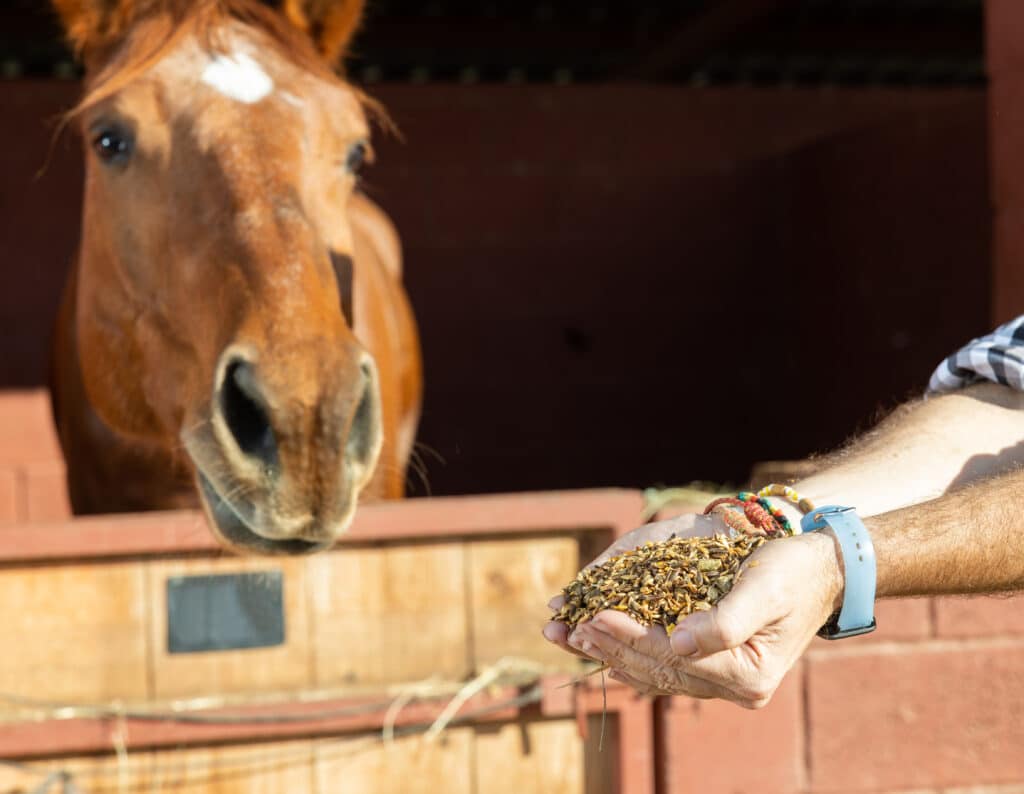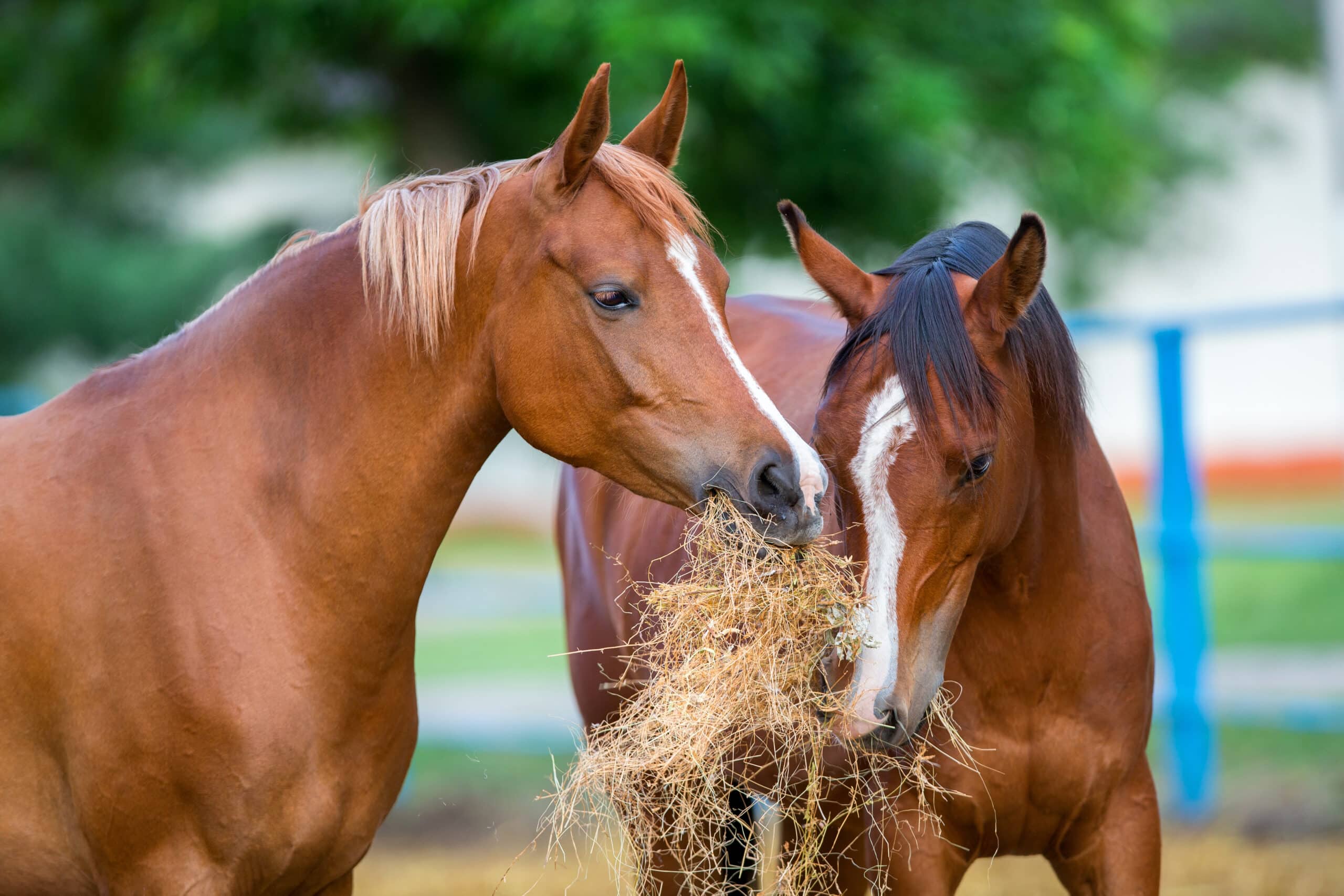Horse Feed That Fuels: Optimize Health, Performance & Longevity
Choosing the right horse feed is one of the most important decisions you will make as a horse owner. Just like people, every horse has unique dietary requirements based on breed, age, activity level, health conditions, living environment, and season. With the market offering so many feed options – such as grains, pellets, supplements, and feeds – it can be hard to decide what is best for your horse.
The Trainer’s Loft offers a carefully selected range of horse feed and nutritional supplements to support every horse’s needs. Our knowledgeable team is ready and happy to help you make an informed decision.
Understanding Your Horse’s Needs
Before selecting horse feed, consider the following: age, weight, workload, living environment, and current health status. Young, growing horses, pregnant mares, senior horses, and performance horses all have different nutritional requirements.
For instance:
- Performance horses need high-energy diets to maintain stamina and muscle.
- Senior horses often require softer, easily digestible feeds.
- Easy keepers (horses that gain weight easily) may need low-calorie, high-fiber diets to prevent obesity or laminitis.
Understanding your horse’s individual needs is the first step in narrowing down your options.
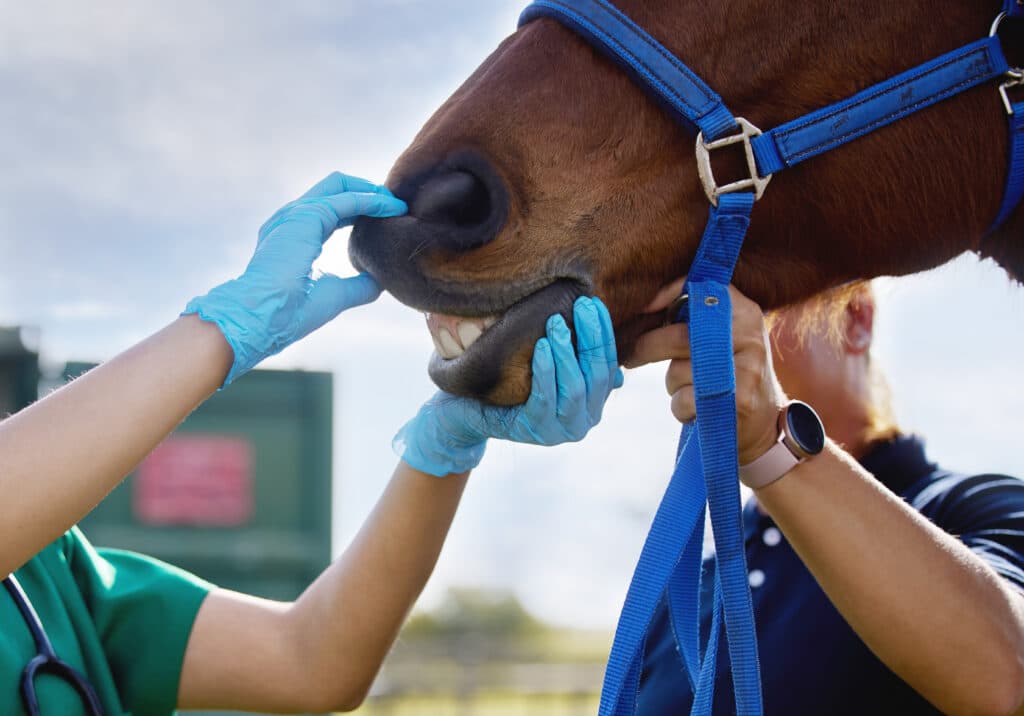
Forage First: Hay and Pasture
Pasture and hay should form the foundation of your horse’s diet. Horses are grazing animals, and their digestive systems are designed to handle large amounts of forage throughout the day.
High quality grass hay or legume hay, such as alfalfa, provides essential fiber that supports gut health, regulates digestion, and keeps your horse feeling satisfied. Even the best grain or concentrate feed cannot replace poor quality hay. Before you invest in a premium bag of feed, make sure your forage and pasture is growing high quality grass.
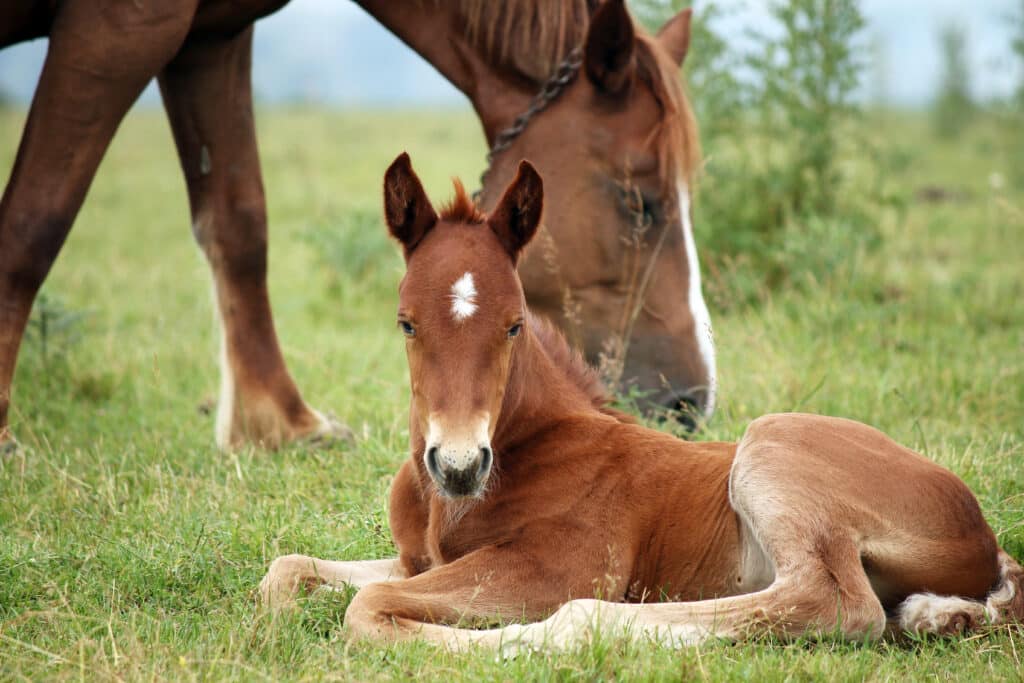
Decoding the Feed Label
When choosing horse feed take a close look at the label. The guaranteed analysis section will give you vital information about the percentages of fat, fiber, protein and other nutrients. Here is what to look for:
- Crude protein: Needed for muscle development. Most adult horses do well with 10–12% protein, while growing horses may need up to 16%.
- Fat: Provides energy. Performance horses may benefit from feeds with higher fat (6–10% or more).
- Fiber: Crucial for digestion. Feeds with higher fiber are ideal for horses in limited pasture or those needing weight control.
Also be sure to check the ingredients list. Whole grains like corn and oats can provide energy but they should be carefully balanced with fiber and essential nutrients. Many commercial feeds now include vitamins and minerals to support a complete diet.
Types of Horse Feed
Here are the main types of horse feed you might consider:
- Complete Feeds: These contain both forage and grain components and are useful for horses that struggle to chew hay or have digestive challenges.
- Concentrates: Grain-based feeds that provide additional energy and nutrients. These are usually fed alongside hay or pasture.
- Pellets and Cubes: Compressed feeds offer uniform nutrition. They’re often easier to store and feed than traditional grain.
- Sweet Feed: Molasses-coated feed that is palatable and energy-dense. However, it is not be suitable for horses prone to insulin resistance or metabolic issues.
- Supplements: Used to balance gaps in nutrition, especially when feeding hay with limited vitamin/mineral content or when addressing specific health conditions.
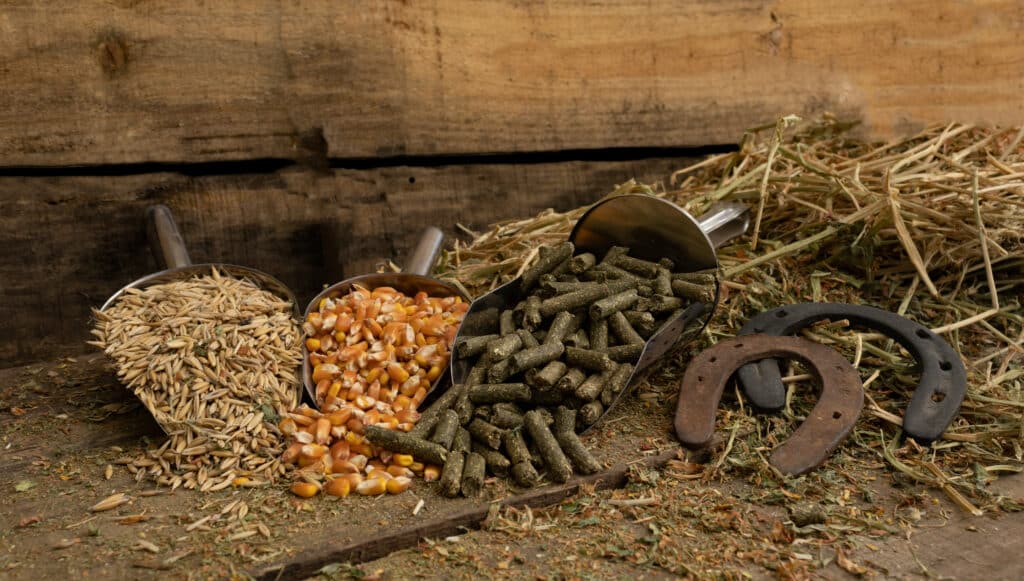
Consult with a Veterinarian of Equine Nutritionist
When in doubt, talk to a professional before selecting the ideal horse feed. A veterinarian or equine nutritionist can evaluate your current feeding regimen and help you design a balanced diet tailored to your horse’s unique needs. They may recommend bloodwork, weight tracking, or condition scoring to be sure your horse is getting the right nutrients.
Monitor and Adjust
After selecting horse feed, carefully observe your horse’s weight, coat condition, energy levels, and overall demeanor. Your horse won’t tell you how they are feeling but their bodies will give you important clues. If your horse is losing or gaining too much weight, appears lethargic, or develops digestive problems, it is time to reassess.
Feeding your horse is not just about filling a bucket, it is about fueling their health, performance, and longevity. By focusing on high quality forage, checking horse feed labels, and considering your horse’s individual needs, you will be better equipped to choose the best horse feed for every stage of life.
If you are unsure where to begin, The Trainer’s Loft offers a wide selection of trusted horse feed brands and nutritional supplements. Our team is always available to help you find the right match for your horse’s needs. A well fed horse is a happy, healthy horse!
